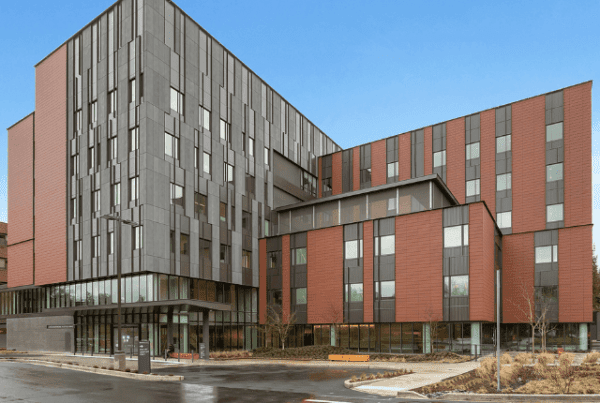In the United States, Latinx communities represent the largest non-white ethnic group. With more than 62 million Americans and more than 1 million residents in Washington state, these communities are also very diverse. They include people of Cuban, Mexican, Puerto Rican, South and Central American, Indigenous and other Latin American cultures or origins.
Hispanic/Latinx Heritage Month (Sept. 15 to Oct. 15)
At UW Medicine, our observance of cultural heritage months allows us to recognize and celebrate the diverse backgrounds of our staff, faculty, trainees, students and patients. For our observance of Hispanic/Latinx Heritage Month, you will find employee profiles and resources on The Huddle to help you learn about the history, contributions and challenges of these communities. Look, also, for the new icon, “Somos UW Medicine” (We Are UW Medicine), which you can add to your email signature as an expression of support and unity.
Our employee profiles reveal their pride as members of Latinx communities that center on joyful celebrations of family, food and traditions. They also comment on how UW Medicine can become more inclusive with suggestions ranging from serving Latinx foods in the cafeteria to making sure that patients have access to information in Spanish in written materials and through interpretation. Another goal is to see more role models in leadership positions. While 6.5% of UW Medicine’s employees are Latinx, they account for only 3.9% of professional staff in senior and executive positions across the organization.
Health Disparities in Latinx Communities
A recent study by the Latino Center for Health highlights the disproportionate impact of the COVID-19 pandemic on Latinx communities. As of July 1, 2021, Latinas/Latinos accounted for 29% of all cases in Washington state even though they represent only 13% of the state’s population. Of equal concern, vaccination rates remain low with less than 50% of the state’s Latinx residents being fully vaccinated.
While these disturbing statistics can be attributed in part to language and cultural barriers, they are not new concerns for UW Medicine. The Latinx Health Pathway in the UW School of Medicine was developed to provide medical students with the training and experiences to provide culturally responsive care in urban and rural Latinx communities.
More recently, we opened the UW Medicine Latinx Diabetes Clinic to address the high prevalence of diabetes among Latinx patients, who get the disease at a younger age and are more likely to die from complications than white patients. In addition to providing care with bilingual physicians, nutritionists and patient navigators, the clinic gives medical trainees an opportunity to learn about the cultural aspects of the clinical management of diabetes.
UW Medicine has taken the same approach to address the COVID-19 health disparities. Over the summer, we launched a campaign with the Seattle Mariners called “This Is Our Shot to Strike Out COVID-19” to encourage vaccination in Latinx as well as Black, Pacific Islander and other marginalized communities in King County. Through the Latino Center for Health, “Adios COVID,” a project co-led by faculty in the School of Medicine and the Information School, worked to encourage vaccination in Latinx communities outside King County. We also developed and continue to offer weekly Community Conversations: Straight Talk About COVID-19 in English and Spanish, which address a broad range of topics including misinformation about the disease and COVID-19 vaccines.
As we continue our observance of Hispanic/Latinx Heritage Month, we acknowledge that much work remains ahead to create an even more inclusive workplace at UW Medicine and to eliminate the language and cultural barriers that lead to health disparities. Thank you for supporting this work, which is essential to our mission of improving health for all people.
Sincerely,
Paul G. Ramsey, M.D.
CEO, UW Medicine
Executive Vice President for Medical Affairs and
Dean of the School of Medicine,
University of Washington
Paula L. Houston, Ed.D.
Chief Equity Officer
Office of Healthcare Equity, UW Medicine
Associate Vice President for Medical Affairs
University of Washington

